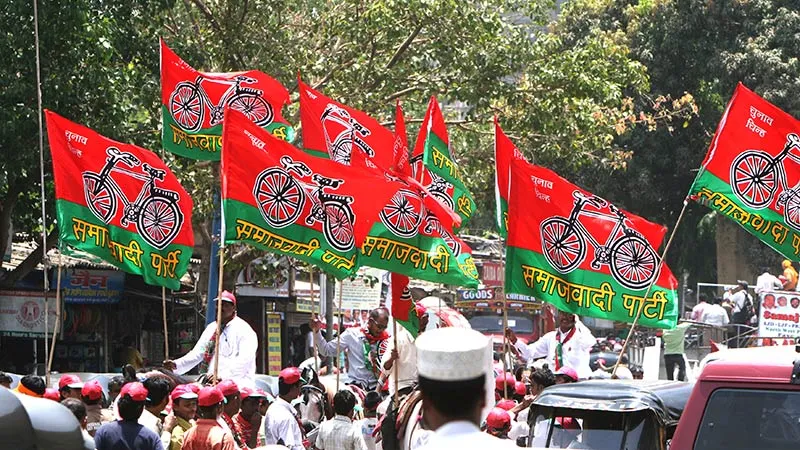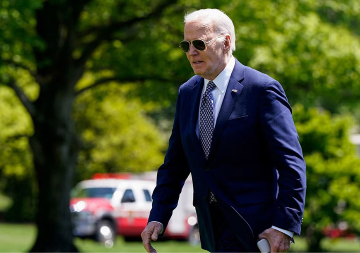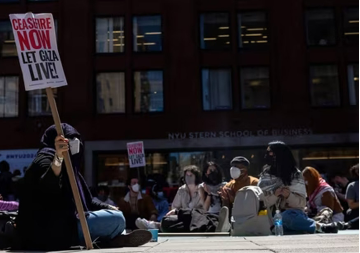
The next round of Assembly Elections in the country are scheduled for early next year. Five States will be going for polls next year, with the main battle being fought in Uttar Pradesh, the biggest political State sending 80 MPs to the Lok Sabha.
The political significance of UP, which has a population of about 205 million, is underscored by the fact that the state has given nine out of the 15 prime ministers to the country so far. The current PM, Narendra Modi, is also from UP as he was elected from the holy city of Varanasi in the 2014 General Elections.
The battle of ballots to elect the 17th Vidhan Sabha, in most likelihood, will take place before or by March next year. All political parties, including the ruling Samajwadi Party (SP), have begun preparations and are leaving no stones unturned to woo the electorate.
The SP, which has 229 MLAs in a house of 403, is being challenged by the Bahujan Samaj Party (BSP), the Bharatiya Janata Party (BJP) and the Congress along with many smaller players.
If one takes into account the number and periodicity of advertisements highlighting the State government’s achievements in little over four years being put in the national as well as media, then Chief Minister Akhilesh Yadav seems to be in a hurry to arrest the rapid decline in the political fortunes of his party.
The father and son duo SP chief Mulayam Singh Yadav as well as the Chief Minster has taken several steps to improve the image of the party as well as that of the government.
While the Chief Minister went in for the 7th cabinet reshuffle on June 27, the party supremo brought back his estranged party colleagues like Beni Prasad Verma and Amar Singh who had left the party for different reasons. Not only Verma and Singh were admitted back to the party, but they were also sent to the upper house of Parliament (Rajya Sabha).
Verma, who had left the SP in 2007 after he had developed strong differences with his party chief, had joined the Congress and was a Cabinet Minister in the Congress led UPA government of Prime Minister Manmohan Singh.
Verma, a Kurmi leader, has been brought back to the party by the SP chief with a calculation that he would bring votes of his caste to the party and would also stop the attempt of Bihar Chief Minister Nitish Kumar, also a Kurmi, to gain a political base in the coming assembly elections. Nitish Kumar has been holding public rallies in the state for last few months.
The Chief Minister recently expanded his cabinet in an effort to address the growing dissidence in the party and appointed three Ministers of State and two cabinet ministers which included two MLAs from the state capital Lucknow. These two newly appointed ministers, namely Ravidas Mehrotra and Sharda Pratap Shukla, had threatened the party that they will leave the party if they were not made ministers.
Chief Minister Akhilesh Yadav was forced to bring back Balram Yadav into his council of ministers whom he had sacked only few days back for his alleged involvement in the merger of the Quami Ekta Dal (QED) into the SP.
Announcement of the merger of the two parties was made by the younger brother of SP supremo Mulyam Singh Yadav, Shivpal Singh Yadav, who is also an important minister in the Akhilesh government.
Since the QED was founded by a noted criminal Mukhtar Ansari, who is a three time MLA from eastern part of the state and is said to wield hold on Muslim voters, the news of the merger brought bad name to the party and the Chief Minister is said to have swung into action and declared the merger null and void.
But the merger and the subsequent annulment was seen as a drama enacted to improve the Chief Minister’s image. The message which was being sought to be spread was that while the SP’s old guard, which includes Mulayam Singh Yadav, Shivpal Singh Yadav, Ramgopal Yadav and Azam Khan, favoured criminals and goons, Akhilesh Yadav is against them and that is why he ensured that the QED was thrown out.
The SP government, despite its various initiatives to develop infrastructure in the state, seems to have gone down in the public assessment — on account of not only bad law and order situation, but also because of the ‘Yadavisation’ of the state administrative machinery. There is a latent sympathy for the Chief Minister among people, but the SP as a party is suffering on account of a negative image.
Another reason for the declining image of the government is a popular perception among people that there were many power centres which were pulling the government in different directions. According to a joke going around in the State, there are four and half Chief Ministers ruling the state. Four power centres popularly perceived were that of Mulayam Singh Yadav, two of his uncles, Shivpal Singh Yadav and Ramgopal Yadav, and the fourth one Azam Khan, a minister in the state government and a trusted Muslim leader of the party chief. Sadly, Akhilesh Yadav was perceived only as the half chief minister.
The SP had won the 2012 elections, registering 29.15 percent votes and grabbing 224 seats — a gain of 127 seats — which helped oust the BSP from power. The SP’s tally went up to 229 as it wrested five more seats from other parties in subsequent by-elections. But in the General Elections of 2014, the party’s poll percentage had slipped to 22.20 percent. The party could win only five seats to the Lok Sabha, lower house of the Parliament. This tally was 18 less compared to its performance in 2009.
The SP had won the last assembly elections as the BSP government had suffered from strong anti-incumbency, charges of corruption and large scale spending government money on the installation of statues of Chief Minister Mayawati, party founder Kanshiram and other Dalit icons at public places and parks.
Also, with an eye on the youth voters, Akhilesh Yadav was projected as the party’s chief ministerial candidate. He was projected as technology savvy and the one who understood aspirations of the young population. Apart from its Yadav vote bank, the SP got support from Muslims and Thakurs also.
Now, the SP’s path for retaining the power in the state seems to be riddled with lots of hurdles. Anti-incumbency, domination of Yadavs in State police and administration, bad law and order situation and a strong challenge from the BJP, which had won 71 Lok Sabha seats in the last general elections, are some of the factors which go against the SP.
The growing perception of rising crime and deteriorating law and order situation is likely to be a major issue in the election. Cracking the whip now, as was done by the Chief Minister in the case of an incident of looting and gang-rape of a girl and her mother on a national highway recently, may not help in changing the perception. Four-time Chief Minister and the BSP chief Mayawati and other opposition parties are making the law and order situation an electoral issue and the SP government is fighting to dispel the impression with its back to the wall.
The battle is shaping up, and it is too early to hazard any guess. But the ruling SP has a formidable challenge to remain in power.
The views expressed above belong to the author(s). ORF research and analyses now available on Telegram! Click here to access our curated content — blogs, longforms and interviews.




 PREV
PREV


